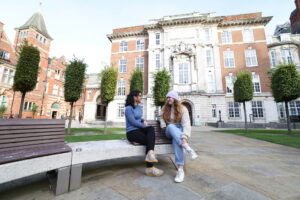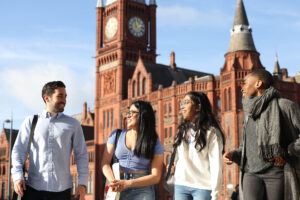How you'll learn
Teaching is delivered through 2-hour seminars/workshops that take place weekly on campus. Seminars involve small and whole group critical discussions of issues arising from designated reading material. Seminars also involve collaborative analysis of academic, professional or creative texts (e.g. medical case reports, images of the body in art/medicine).
External partners in the fields of health, policy, arts and culture deliver various seminars and workshops within the programme, enabling students to make connections with relevant organisations in the Liverpool and Merseyside region. The average number of students in seminars varies depending on the module but between 6 and 12 students is the average.
The majority of students’ learning time is in self-directed study and independent research. This will include reading widely in the fields relevant to this subject area, researching appropriate resources in this field, acquainting yourself with relevant theoretical and methodological approaches to health and medicine, and developing individual research ideas.
Seminars/workshops are supported by a Virtual Learning Environment where students are encouraged to explore topics arising from sessions and connections between them and to make use of a bank of online resources.
How you're assessed
The assessments in this programme are designed to test knowledge and understanding of the field of medical and health humanities, foster interdisciplinarity and creative reflection, and encourage the translation of academic material for a range of audiences. Module assessments typically include, digital presentations (narrated PowerPoint, blogpost, podcast, wiki, academic journal entry or video-project) and/or a piece of extended writing (practice report, article for academic journal or magazine, philosophical dialogue or visual-literary creative piece). Assessments seek to help students communicate their ideas in an accessible and creative way to both general and academic audiences while honing their digital skills.
During the summer period, students build upon this work to produce a 15,000-20,000 word study – the capstone project – which may take the form of a dissertation, placement report/portfolio or creative project, and students will be encouraged to draw on the rich resources of the Liverpool City Region where appropriate.
Liverpool Hallmarks
We have a distinctive approach to education, the Liverpool Curriculum Framework, which focuses on research-connected teaching, active learning, and authentic assessment to ensure our students graduate as digitally fluent and confident global citizens.
The Liverpool Curriculum framework sets out our distinctive approach to education. Our teaching staff support our students to develop academic knowledge, skills, and understanding alongside our graduate attributes:
- Digital fluency
- Confidence
- Global citizenship
Our curriculum is characterised by the three Liverpool Hallmarks:
- Research-connected teaching
- Active learning
- Authentic assessment
All this is underpinned by our core value of inclusivity and commitment to providing a curriculum that is accessible to all students.










